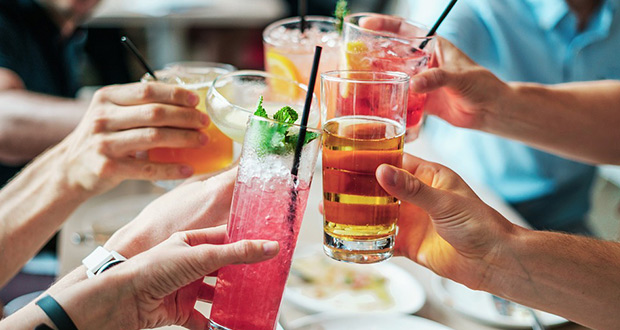“No Substitute” For Replicating Pub Visit Reveals Study

* STUDY: GORDON-WILSON-pubs-STUDY.doc
Many occasional pre-pandemic pub-goers might never return, posing a risk to the survival of Britain’s historic pub culture, according to new research.
While regular pub-goers have remained passionately loyal to the pub culture and can’t wait to return to ‘normal’, the majority who visit pubs less frequently have found alternative ways of socialising during the pandemic when pubs have been closed for longer than they have been open. This potentially threatens the survival of some pubs.
The first-ever research of people’s attitudes to pub closures during lockdowns led by Dr Sianne Gordon-Wilson, at the University of Portsmouth, found that although some pub drinkers would stay loyal, the £25bn pub industry will still need to adapt further to survive.
The exploratory in-depth study is published in the International Journal of Hospitality Management.
She found the first and strictest lockdown in Britain had not led to regular pub-goers finding alternatives, as there was no substitute for them to the ‘home from home’ of their local pub.
Dr Gordon-Wilson said: “Pubs are a central and important part of UK culture with a long history. They are also an integral part of some people’s social and work life, and that’s difficult to replicate at home.
“Nine in ten British adults visit pubs, with many seeing pubs as an extension of their home. They want to enjoy the pub environment with company.
“But despite the strength of loyalty to them deep in the British cultural psyche, pubs are in a constant state of flux.
“The main issue is that not all pubs are able to open because they do not have the space to ensure social distancing. In addition, the sector is finding it difficult to recruit staff and only table service can be provided. Many pubs are now struggling and several have closed for good after 18 months of hardship. Together, this puts pubs in an unenviable position – they’ve lost substantial income, are still paying rent, and the longer they stay closed, the higher the chance of less regular customers finding alternatives.”
Dr Gordon-Wilson conducted layered research – watching and coding online forum conversations in the lead up to the first peak in March and April 2020, and carried out in-depth interviews with six men and seven women with an average age of 44.
She found that individuals used pubs to network, do business, date, relax, seek variety and see friends and that none of those she spoke to had found a substitute that came close to replicating a pub visit.
Some people admitted to drinking much more at home, during lockdown as a way to escape the gloom associated with the pandemic.
One man said he mourned not being able to go on dates in the pub because it was ‘more fun and relaxing’. However, he had found dating while sober a better way to tell if someone was a ‘good fit’ and that dating like his ‘grandparents had done’ by going on walks and getting to know each other had been good, though only when the weather was dry.
Another man interviewed said he had conducted most of his sales work in pubs pre-pandemic, so he had seen business suffer as it was impossible to ‘schmooze’ people as effectively in a virtual video conference.
Three of those interviewed talked about how critical it was to their job and career success to mix in the pub after work with colleagues. All three said they were looking forward to after-work drinks resuming.
Two of the women interviewed said they’d missed the chance to socialise with friends or family in pubs.
Many had tried online platforms for drinking with friends or workmates, which one described as ‘great fun’. And many had turned to drinking wine instead of beer, because wine in pubs was considered too expensive to drink regularly.
Some had even joined online wine delivery services, mainly to ensure a constant supply of alcohol.
All those interviewed said boredom, stress and despair had driven them to drink more alcohol during the first lockdown – many who had previously visited their pub two-three nights a week now drank at home every night.
Dr Gordon-Wilson said: “Those I interviewed and the online forum discussions I coded show a strong attachment to the pub and low satisfaction with alternatives. However, given the uncertainty over a return to normal – and many had hired staff and bought stock expecting to re-open today [JUNE 21] – pubs will need to keep adapting, perhaps by offering a blended online and offline activities to keep their relevance in customers’ minds.”
Pre-pandemic, pubs were the third largest employer in Britain, behind hospitality and hotels.
